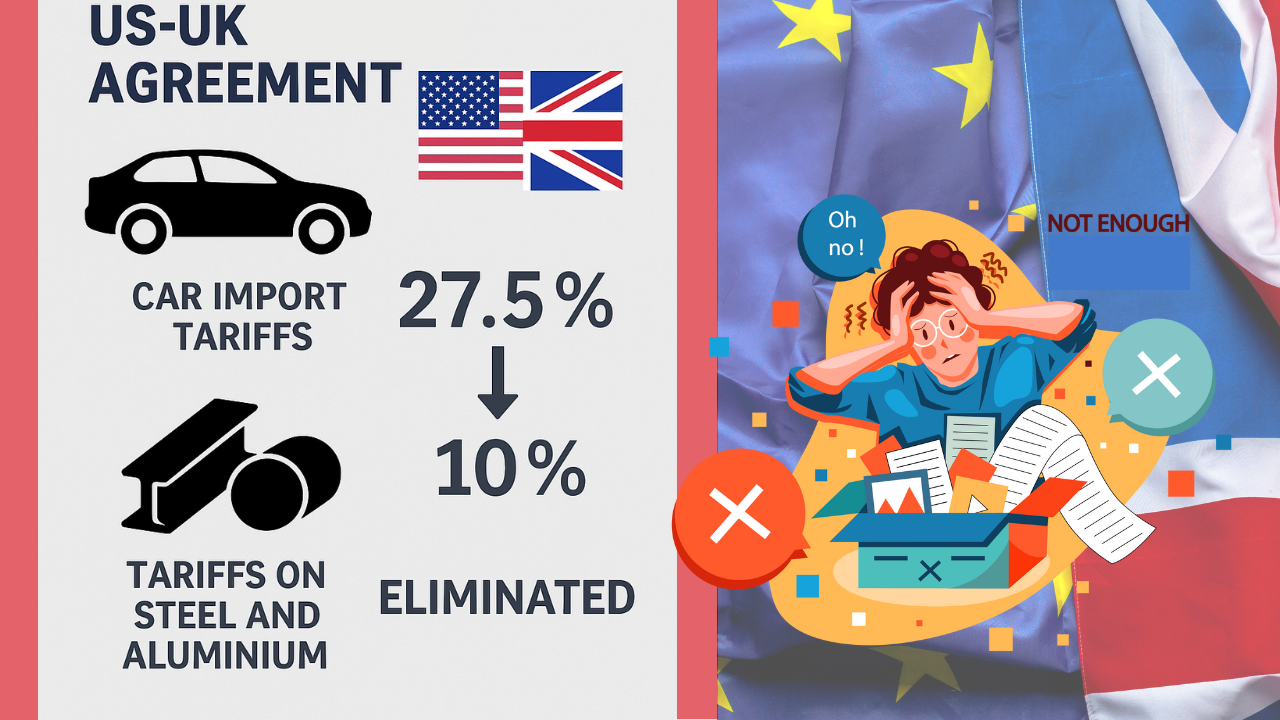您想继续阅读英文文章还
是切换到中文?
是切换到中文?

THINK ALUMINIUM THINK AL CIRCLE

The freshly inked US-UK trade pact may have triggered diplomatic handshakes, but European Union trade ministers aren’t impressed. In Brussels on Thursday, they made it clear: the limited nature of the agreement, particularly its retention of US tariffs on British exports, won’t be sufficient to prevent looming EU countermeasures.

Announced last week by US President Donald Trump and UK Prime Minister Keir Starmer, the bilateral trade deal trims tariffs on aluminium, steel and cars but keeps in place a 10 per cent levy on most UK exports. While it’s being touted as a step forward, European Union (EU) views it as a half-measure at best.
Polish Deputy Economy Minister Michal Baronowski, representing the EU’s rotating presidency, acknowledged the truce with China and the UK deal as signs of a possible de-escalation. However, he warned against premature optimism.
“The bloc should not jump too fast,” Baronowski said, noting similar caution from global partners like Japan. “I don’t think that’s the level of ambition that Europe would be happy with. I think we can have a better deal than staying with pretty high tariffs... I would hope that (the EU gets) a better deal than any other deals the US is now negotiating.”
Sweden’s Trade Minister Benjamin Dousa minced no words. “If the UK-US deal is what Europe gets, then the US can expect countermeasures from our side,” Dousa said. “I would barely call it a trade deal at all.”
At present, the EU faces a 25 per cent tariff on its exports of steel, aluminium and cars to the US, plus a 10 per cent “reciprocal” tariff on nearly all other goods, potentially climbing to 20 per cent if negotiations don’t progress before the July 8 deadline.
…and so much more!
SIGN UP / LOGINResponses








